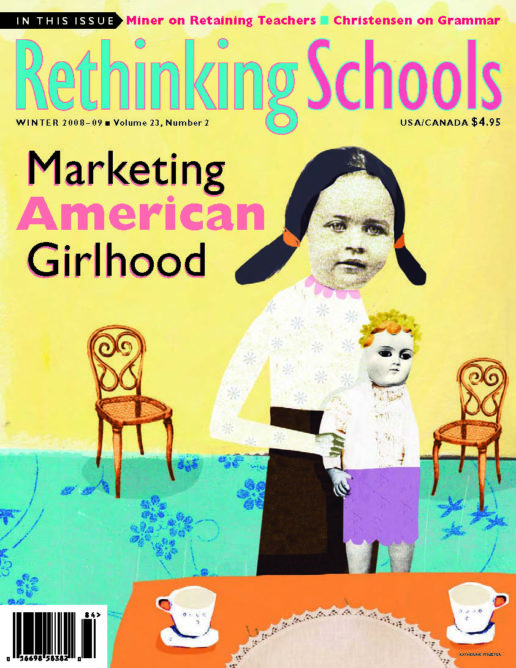Preview of Article:
Remembering Mahmoud Darwish
Illustrator: Michael Nye
When I included the poem “The Prison Cell” in my first anthology of poems for young readers, This Same Sky (Four Winds Press, Macmillan, 1992), I had not yet met the poet Mahmoud Darwish, but had been reading his poems in English translation since I was a teenager. It would surprise me, in years following the appearance of my first anthology, how many U.S. teachers (in high schools particularly, but also middle schools) would ask me to read this particular poem out loud during my presentations. Somehow, Darwish’s simple, strong poem “The Prison Cell” had the power to encourage people to sit up straighter, take note — and discuss or contemplate issues of injustice, as they recognized them. Latino students in Santa Fe, for instance, seemed profoundly moved by the poem and the possibilities of reclamation and enduring power it suggests.
Darwish, beloved as the beacon-voice of Palestinians scattered around the globe, had an uncanny ability to create unforgettable, richly descriptive poems, songs of homesick longing which resonate with displaced people everywhere.
It would have stunned me to imagine that I would stand next to him on stage, along with the poet Carolyn Forche, reading his poems in English after he read them in Arabic at an event some years ago at Swarthmore College, when he received the Cultural Freedom Award given by the Lannan Foundation. He spoke English well enough to have read his own translations, but did not want to.

